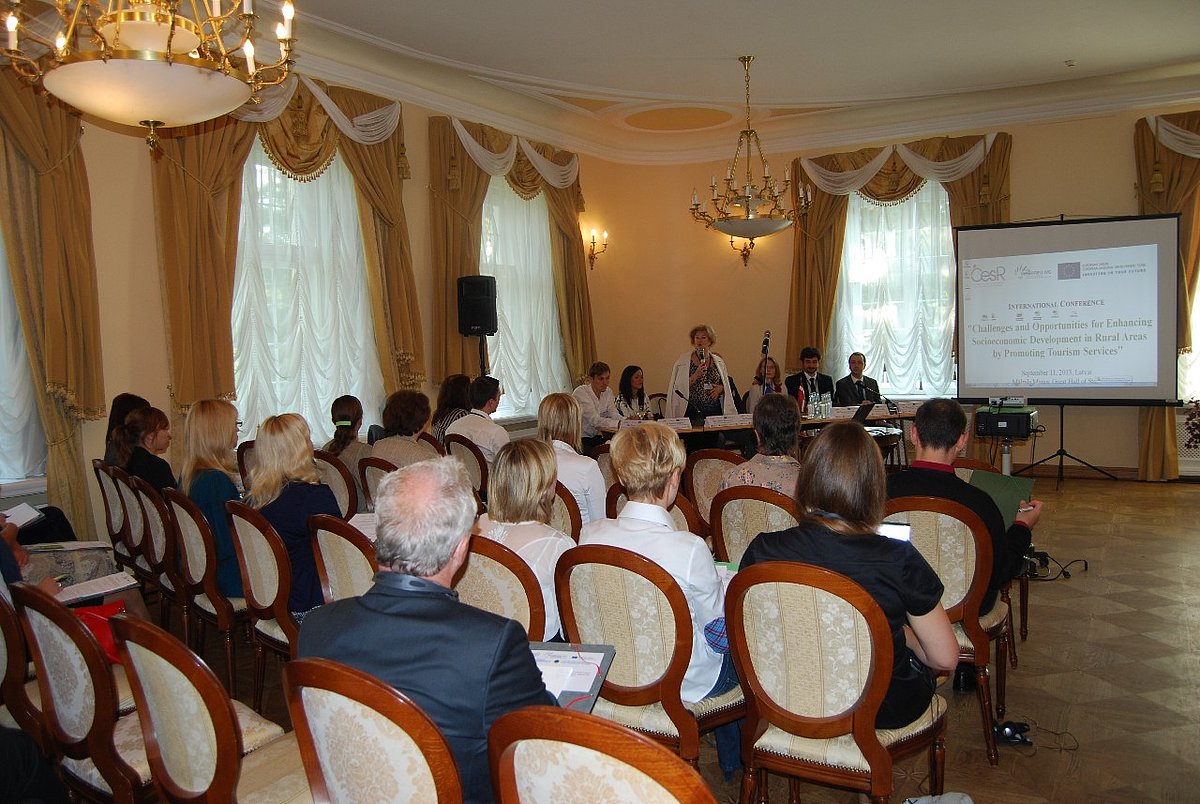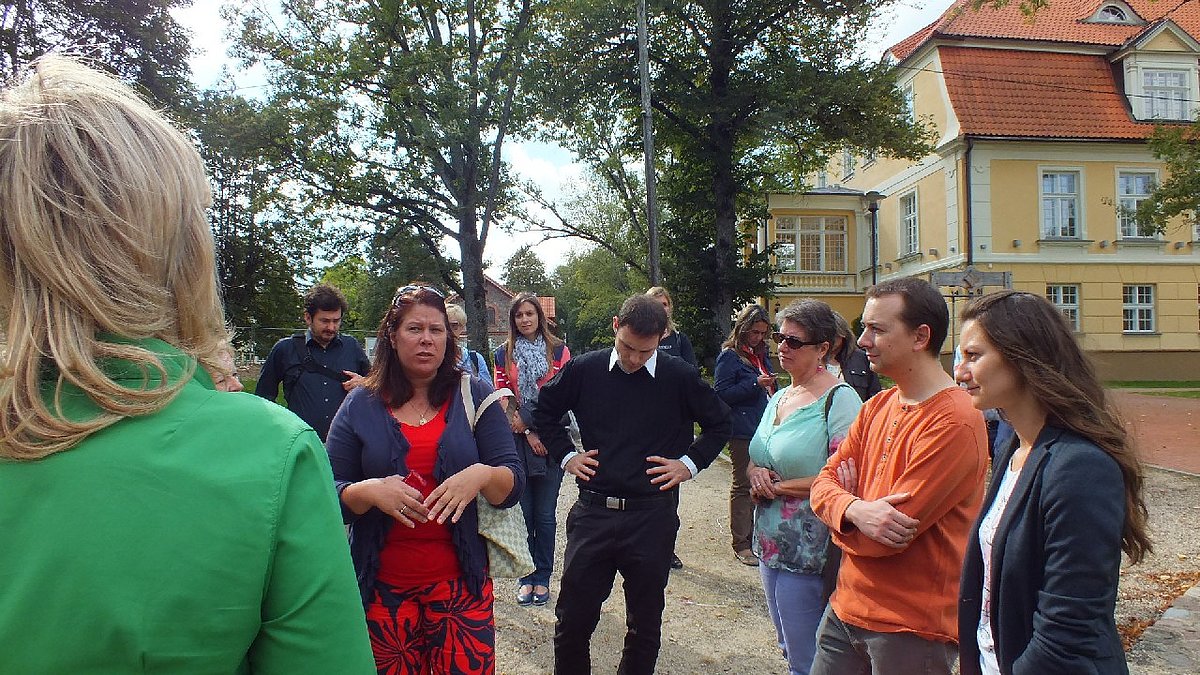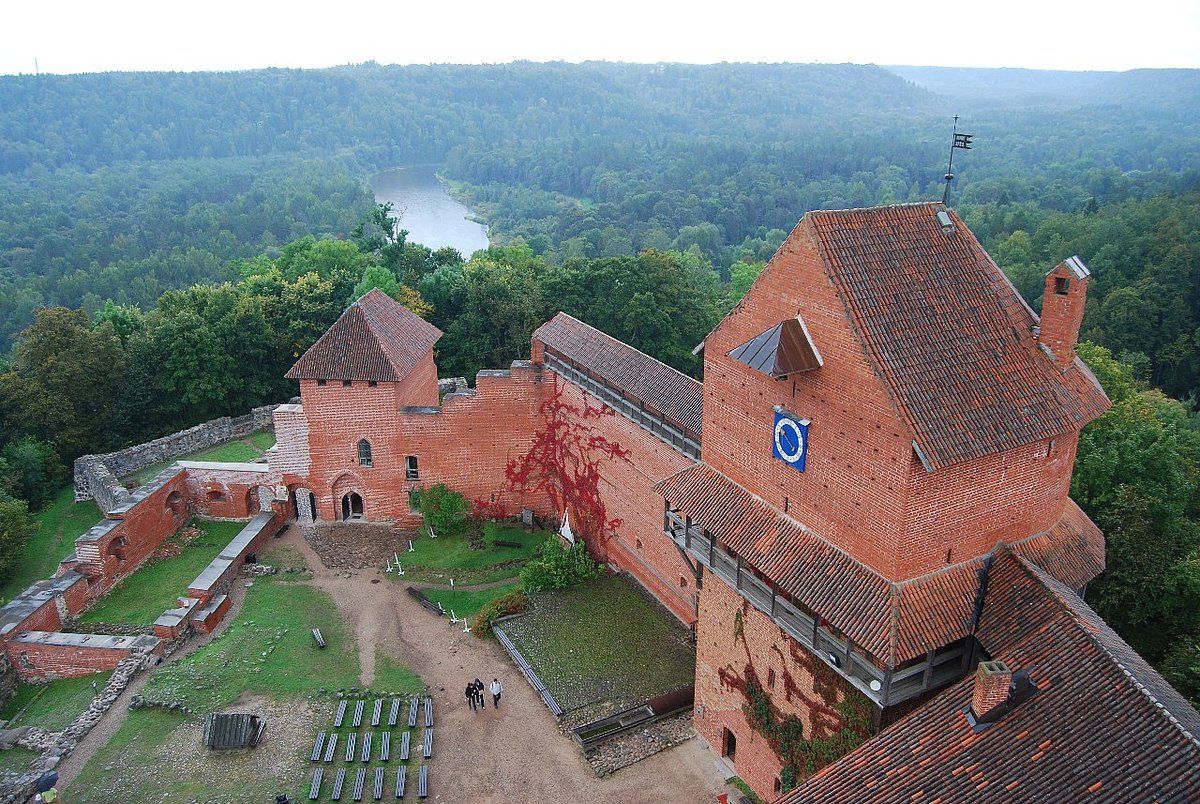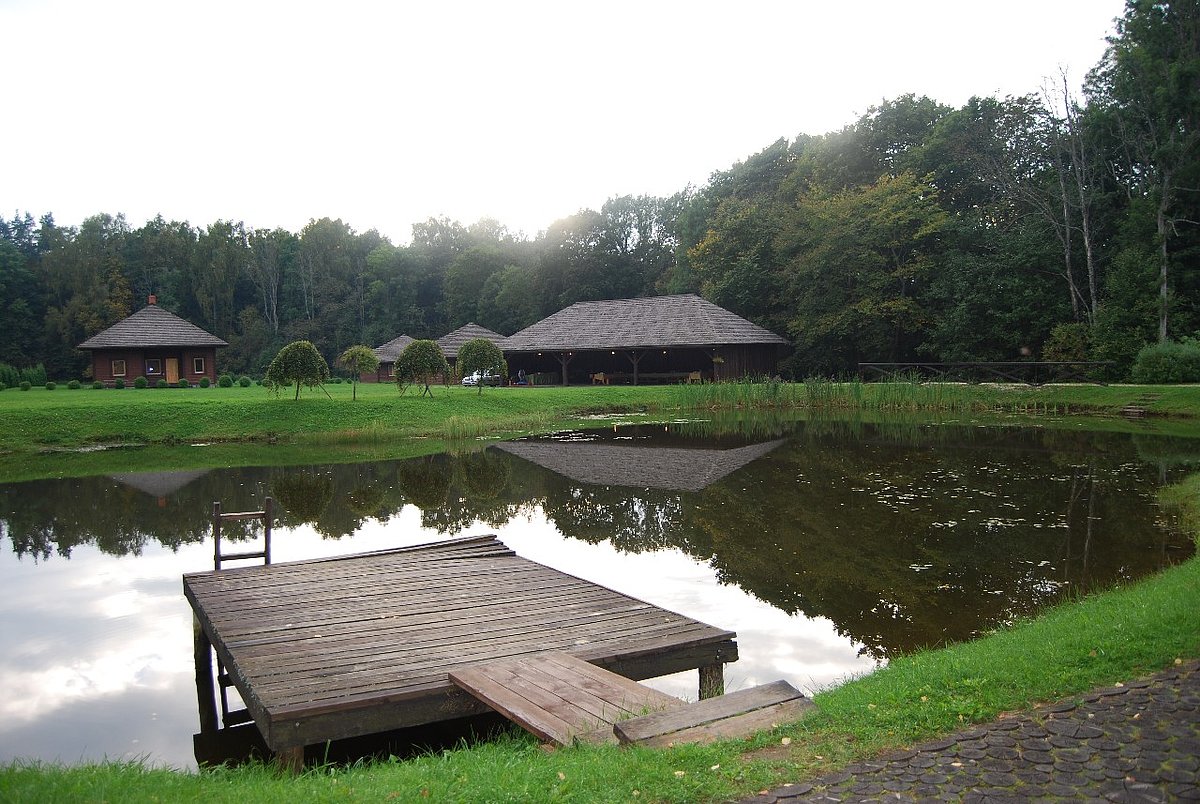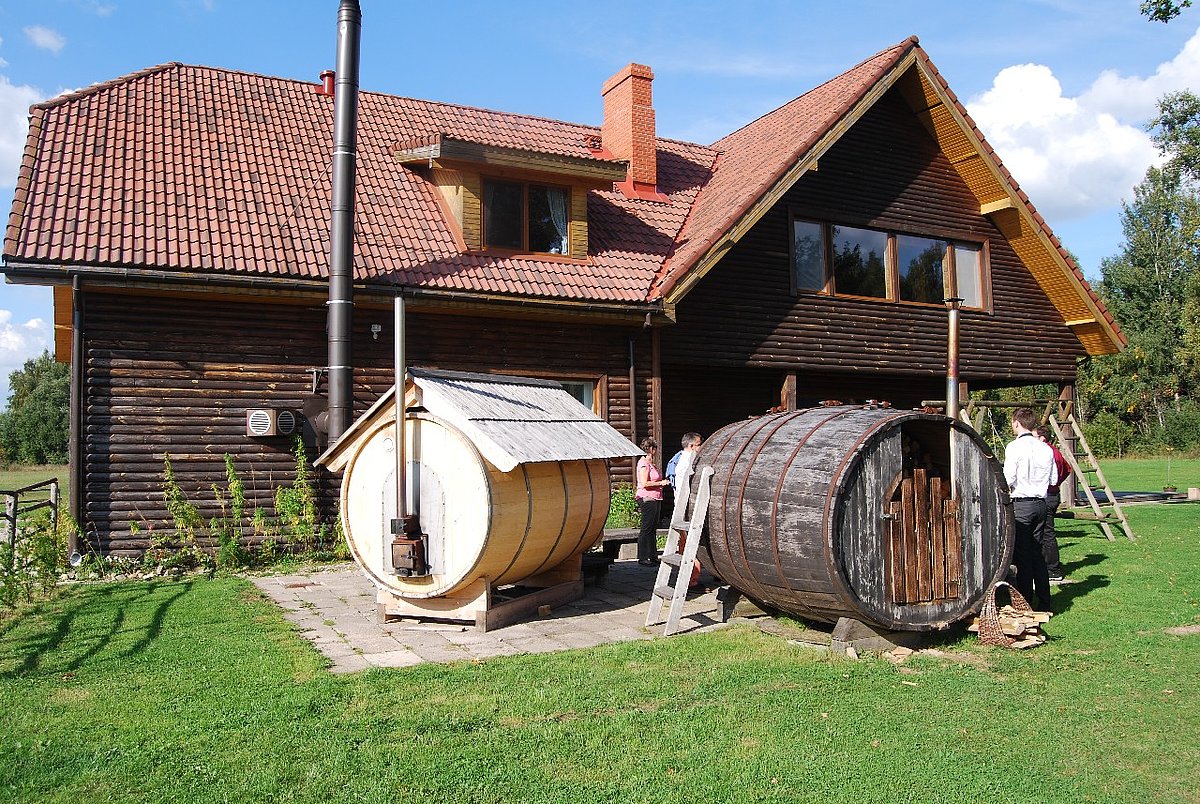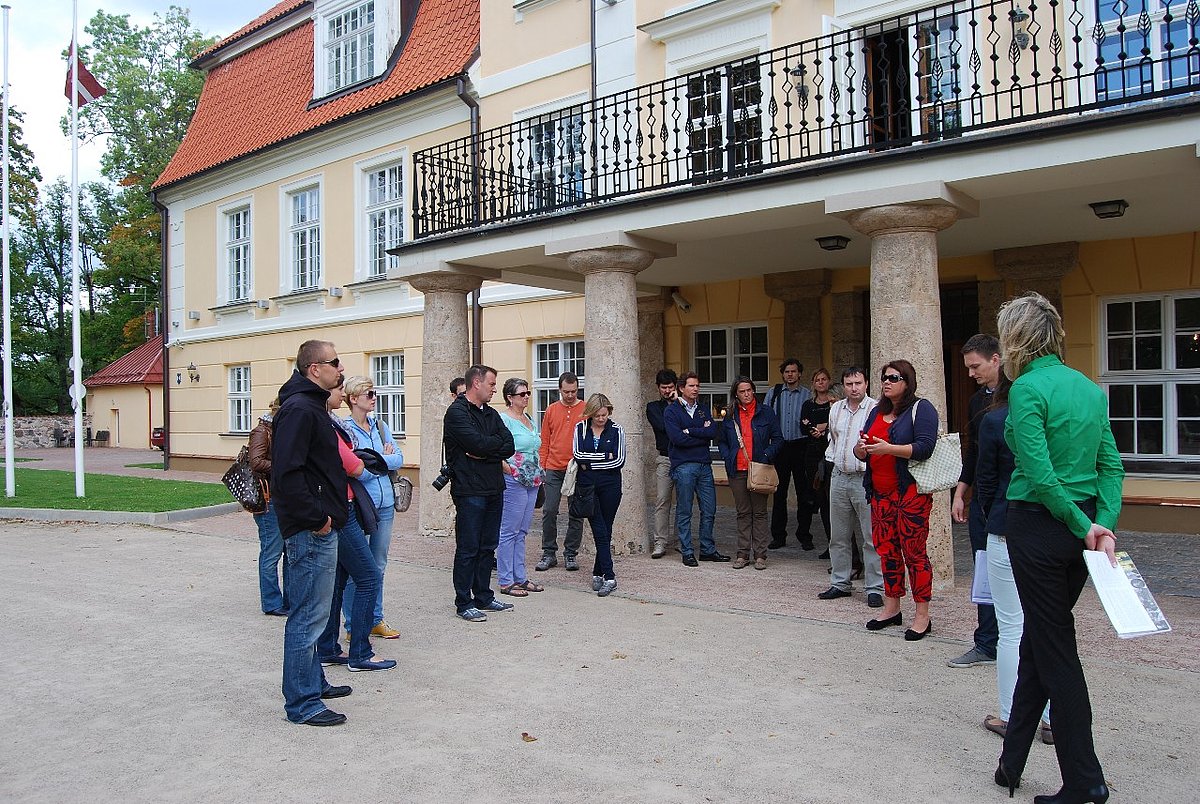
During the visit CesR partners had an opportunity to get themselves acquainted with specific examples of rural tourism and tourism services in various regions of Latvia - Mālpils, Allaži, Sigulda, Bīriņi and Saulkrasti, to discuss a significance of tourism clusters in the regional development with representatives of the Gauja National Park Tourism Cluster and the cluster initiative “Saviļņojošā Vidzeme”, as well as take part in the project conference “Challenges and Opportunities for Enhancing Socioeconomic Development in rural Areas by Promoting Tourism Services”.
The main goal of the CesR conference was to discuss common topical issues and share experiences about solving socioeconomic problems in rural regions, including new job creation by using the potential and opportunities provided by tourism sector. Special emphasis was placed on the evaluation of diverse forms of cooperation, for instance, evaluation of the influence of cluster initiatives on development of tourism services, as well as an effective use of cultural heritage in promoting tourism development.

In addition to the CesR project coordination meetings and the conference, the following meetings took place:
The director of the hotel “Mālpils Manor” Ms Ilze Steķe informed project partners about the history and activities provided by the “Mālpils Manor”. The "Mālpils Manor" functions as a design hotel which offers both accommodation for travelers, as well as premises and catering for weddings and conferences. The hotel’s scope of services include SPA services, cooking master lasses and nature trails both for hiking and cycling.
During the study visit, project partners were introduced with the Gauja National park tourism infrastructure. The Gauja National park, which celebrates it’s 40th anniversary this year, and the historically and culturally valuable heritage found in this region, have a significant role in developing tourism infrastructure and services. Sigulda city and the region around it statistically have the most overnight stays of what is to be considered rural areas in Latvia. Sigulda is the first choice of a rural city for tourists after visiting Riga. Tourism and branches related to it are the main source of income in Sigulda region. Since the restoration of Latvian independence in 1991, the main emphasis is placed on conserving Sigulda's public monuments and parks, as well as improving the town's tourist sector. As a notable achievement, it is important to mention that readers of “The Guardian” have recognized Turaida and Gauja river valley as the most beautiful autumn season destination, surpassing both the impressive Merino Glacier in Argentina and the harvest of grapes in Italy.
While visiting the Turaida Museum Reserve CesR project partners had the opportunity to observe the most visited tourism object in Latvia, experience its services and cooperation with other tourism service providers in this regions. Indirectly with help of mass media, the Turaida Museum Reserve has attracted both new businesses and persons from other countries.
The Turaida Museum Reserve is a heritage site. The total number of tourists in 2012 - 220,744 visitors from different countries. The 42 hectares of grounds are replete with archaeological, architectural, historical and art monuments, all of which provide an account of the events from the eleventh century onwards. The events of the Turaida Museum Reserve are multi-faceted: besides setting up exhibitions, activities are geared towards the preservation of the cultural environment, the maintenance and shaping of the landscape, as well as diverse visitor-oriented activities.
During the visit of the recreation center „Brūveri”, the owner Mr Uldis Dvinskis presented his array of tourism services and the concept of a guest house. The recreation center offers conference room rental and self-catering accommodation, as well as an opportunity to enjoy traditional sauna, surrounding nature and cultural heritage in cooperation with nearby tourism services providers. Today „Brūveri” is the biggest recreation centre in the Sigulda region.
The owner of another guest house „Mauriņi” located in the Sigulda region Mrs. Māra Zemdega presented her approach in providing tourism services, and informed that the guest house mainly specializes in large scale events and services linked with them. Owner of the guest house “Mauriņi” attracts local workforce depending on the specifics of the demanded activities during an event.
During the meeting with representatives of the Gauja National Park Tourism Cluster participants discussed an importance of a unified management and coordination system for reaching common tourism goals, as well as the usefulness of attracting investment, introducing innovations and ensuring flow of information and knowledge. The triple helix - Collaboration between businesses, local authorities and the Vidzeme University, was mentioned as a key element for ensuring effective operation of the cluster while achieving its objectives. The Gauja National Park (GNP) tourism cluster initiative began in late 2011, thus associating more than 50 players, mostly tourism providers, six municipalities, Vidzeme University and others. The association "Sigulda Region Tourism Association" on September 2012 signed an agreement with the Latvian Investment and Development Agency about funding and implementing the project "Gauja National Park Tourism cluster”.
During a meeting in the Saulkrasti regional council, representatives of the cluster initiative “Saviļņojošā Vidzeme”, Saulkrasti municipality and tourism industry informed about the cooperation between municipalities along the seashore for developing tourism infrastructure in this area. Also, the project partners visited the beautiful local natural landscape sight – the White Dune.
In addition, CesR partners had a chance to visit the “Bīriņi Castle” and see the way how wedding ceremonies and business events are organized there. The "Bīriņi Castle" permanently employs around 60 people.
The main emphasis of the CesR study visit was on new cooperation forms between representatives of the tourism industry, including clusters and cluster initiatives, and various tourism management examples, drawing attention to the idea of creation, restoration and improvement of infrastructure, as well as a skillful use of natural and cultural heritage, thus creating a foundation for attracting investment and people to a region and social provisions of good quality.
Additional information is available on the home page of the project: www.cesr-project.eu. Contact person from the University of Latvia: Mr Kārlis Muižnieks, ph.: +371 29475144, e-mail: karlis.muiznieks@gmail.com.

 LU konference
LU konference